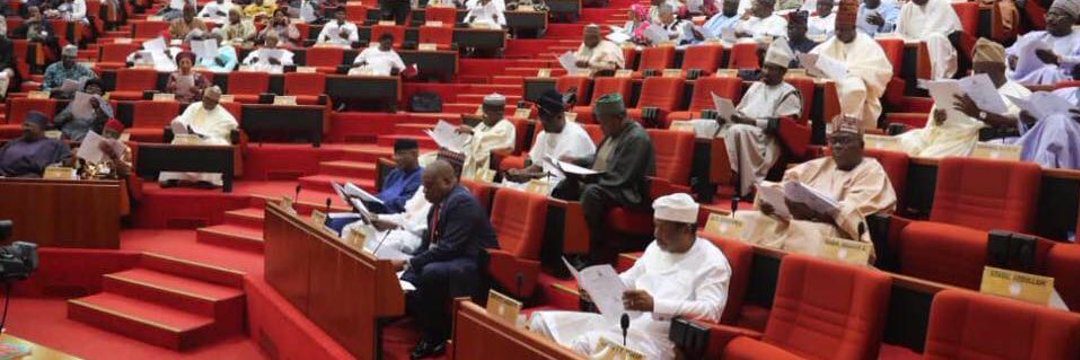The executive session that started Wednesday’s plenary was attended by Nigerian senators.
The two-hour-long closed-door meeting’s specifics were not immediately made public.
At the conclusion of the meeting, the Senate President, Ahmad Lawan, merely stated that the legislators addressed matters impacting the operations of the National Assembly in general and the Senate specifically.
Philip Aduda, the minority leader, revealed during plenary that they had spoken about the level of insecurity in the nation and a potential notice of impeachment for President Muhammadu Buhari.
His admission sparked the subsequent drama, which saw opposing senators leaving the Senate chamber.
Mr. Aduda and other opposition legislators stormed out of the room in rage after Mr. Lawan rejected their proposal.
After the secret session, the parliamentarians complained to the media about how Mr. Lawan had prevented them from talking about the widespread insecurity in the nation—a subject that had received considerable discussion during the closed session.
Mr. Aduda revealed that the president has been given a six-week deadline or he will be “shown the way out.”
We decided in the closed session that we should talk about the subject of insecurity in the nation, but the Senate President insisted that we couldn’t talk about it in plenary.
He explained that the minority caucus raised the issue of implementation of the several resolutions approved about insecurity during the executive session.
“At the closed session, we agreed that we must give the president an ultimatum that if he failed to comply with our resolutions on how to tackle insecurity within six months, we would move an impeachment proceeding against him.
“We expected the senate president to brief the public on what we discussed at the closed session but he did not. He also ruled out our point of order to discuss it.
This would be the first time talk of impeachment of President Buhari will come up in the ninth Senate.
We decided in the closed session that we should talk about the subject of insecurity in the nation, but the Senate President insisted that we couldn’t talk about it in plenary.
He explained that the minority caucus raised the issue of implementation of the several resolutions approved about insecurity during the executive session.
There hasn’t been an impeachment attempt despite the MPs’ frequent complaints about the unrest in the nation and their continuous requests for the federal government to take greater action.
According to information obtained by PREMIUM TIMES, many lawmakers, including those from the APC, are angry, terrified, and concerned about the recent threats and attacks throughout the nation, particularly in the Federal Capital Territory.
A two-thirds majority of senators would need to agree to the impeachment motion in order for it to proceed, though. Even if every opposition senator backed the proposal, it would be challenging because the APC, the country’s ruling party, holds more than half of the 109 Senate seats.



















